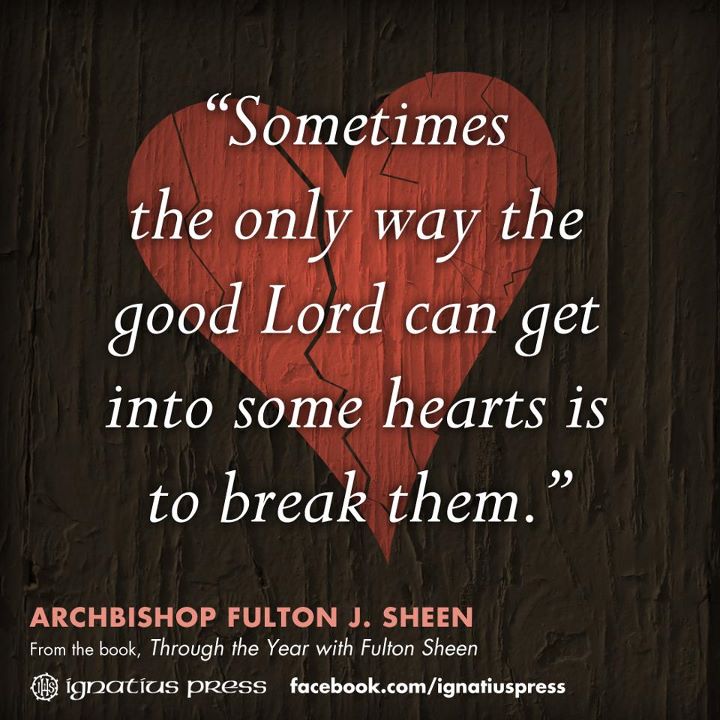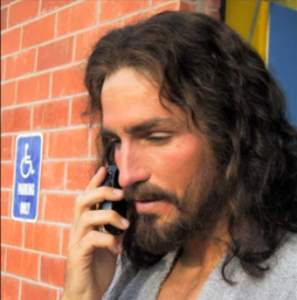Tag: Jesus
Sunday Lectionary: Arise and shine!
4th Sunday of Lent, 18th March 2012
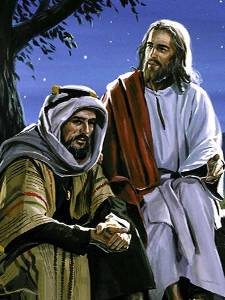 In our First Reading last week we read about the giving of the Ten Commandments and this week we continue our Lenten tour through the high points of Old Testament Salvation History.
In our First Reading last week we read about the giving of the Ten Commandments and this week we continue our Lenten tour through the high points of Old Testament Salvation History.
Our First Reading begins on a rather somber note. The Kingdom of Judah had abandoned God’s Law and, as a result, the Jerusalem Temple was destroyed and the people led into captivity. All of God’s promises to King David seemed to be lost! We hear the people’s song of lament in today’s Psalm.
However, because of God’s mercy and through His divine providence, the pagan King Cyrus decides to grant the Jews their freedom, releasing them from bondage.
In the light of the New Testament, we know that God’s promises to King David were not forgotten, but that they all found their fulfillment in Jesus of Nazareth, both Son of David and Son of God! The freedom granted to God’s people by King Cyrus was simply a foreshadowing of Jesus’ work of salvation. It is through the King of Kings that we are released from the bondage of death and brought to new life.
In our Second Reading, St. Paul tells use that “because of the great love he had for us, even when we were dead in our transgressions, [He] brought us to life with Christ”. These words of St. Paul are themselves only an echo of the Master’s teaching. In this week’s Gospel Reading, during His discourse with Nicodemus, Jesus reveals the heart of the Father: “For God so loved the world that he gave his only Son, so that everyone who believes in him might not perish but might have eternal life“.
Full of confidence, therefore, in God’s mercy and love, let us approach this week’s Eucharistic liturgy with the joy of those who have been granted new life 🙂
Jesus and Facebook
Jesus: The New Moses
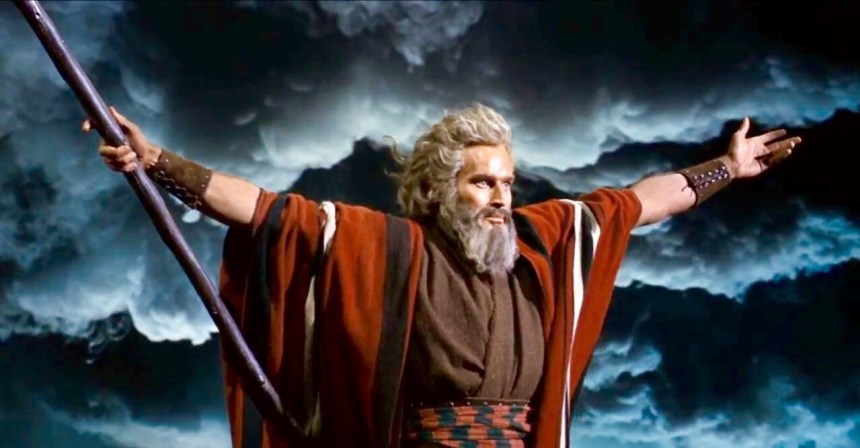
In last Sunday’s First Reading we read how Charlton Heston Moses said that another prophet would come after him. This promise reaches its ultimate fulfillment in Jesus. This is why Jesus is often referred to as “The New Moses”.
Below are a list of similarities between Jesus and Moses which I recently added to my commentary on last Sunday’s Readings:
1. Pharaoh killed all the the male Hebrew babies, but Moses was saved (Exodus 1:22; 2:1-2).
Herod killed all the male babies in and around Bethlehem, but Jesus escaped (Matthew 2:16-18).
2. Moses fled from Egypt, but later returned (Exodus 2:15; 4:18)
Jesus fled to Egypt and later returned to Israel (Matthew 2:13-23)
3. Moses went up the mountain to receive the Law (Exodus 24:1-3)
Jesus delivered the New Law at the Sermon on the Mount (Matthew 5:1-3)
4. Moses was the mediator of the Old Covenant through the blood of young bulls (Exodus 24:8)
Jesus is the mediator of the New Covenant through His own blood (Matthew 26:28)
5. Moses did not eat or drink for forty days and forty nights (Exodus 34:28)
Jesus also fasted while being tempted in the desert (Matthew 4:2)
6. Moses delivers the first five books of the Bible (Genesis – Deuteronomy)
In Matthew’s Gospel, Jesus gives five extended sermons (Matthew 5-7, 10, 13, 18, 24-25)
7. Moses lifted up the bronze snake in the wilderness (Numbers 21:9)
Jesus said that, in a similar way, He Himself would be “lifted up” (John 3:14).
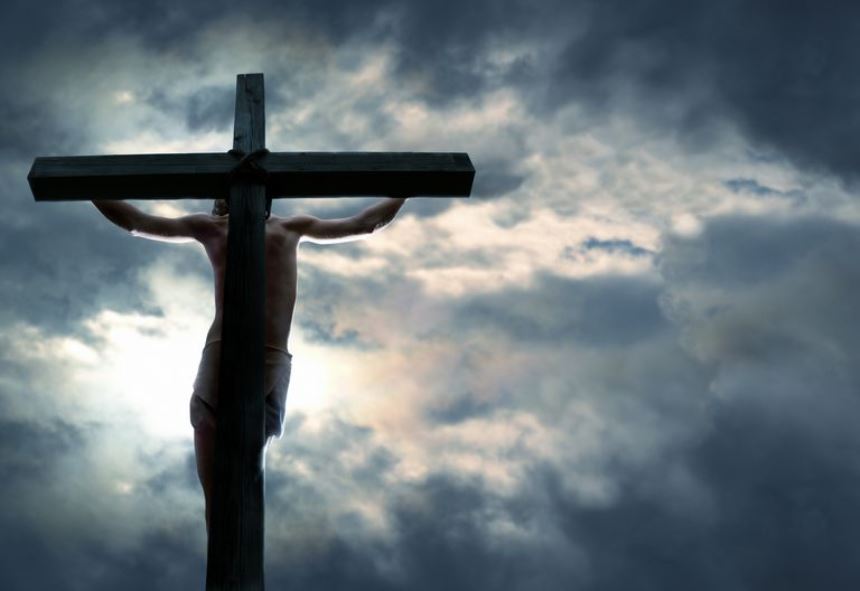
Jesus vs Religion – Final Thoughts
I know, I know….this topic has been done to death, but I wanted to offer some closing thoughts on Jeff Bethke’s Jesus > Religion YouTube video…

The Catholic Response
A great little follow-up to the “Why I hate religion but love Jesus” YouTube video I briefly commented on a couple of days ago:
UPDATE: It appears that the chap who made the original video has had a change of heart…
Jesus = Religion
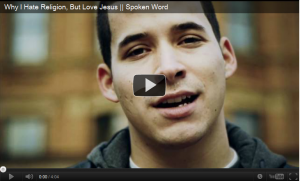 The following question is asked by the artist on the YouTube video “Why I hate religion but love Jesus”:
The following question is asked by the artist on the YouTube video “Why I hate religion but love Jesus”:
“What if I told you Jesus came to abolish religion?”
Hmmm…well, I guess I’d probably tut and then roll my eyes.
Next, I think I’d open my Bible to Matthew’s Gospel:
“Do not think that I have come to abolish the Law or the Prophets; I have not come to abolish them but to fulfill them” – Matthew 5:16-18
I think I then might flip over to the Epistle of St. James:
Religion that God our Father accepts as pure and faultless is this: to look after orphans and widows in their distress and to keep oneself from being polluted by the world – James 1:27
